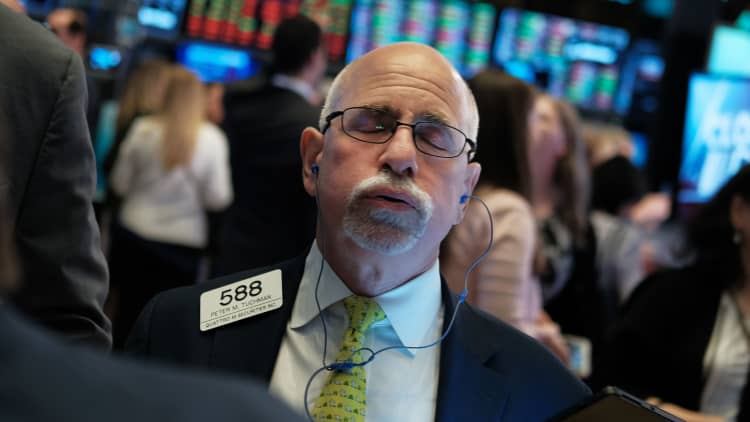
Guggenheim's Scott Minerd said the sharp decline in the benchmark 10-year yield could continue to the 1.4% level before correcting.
The 10-year yield, which influences mortgages and other loans, has plunged in the past week, from 2.07 before the Fed's rate cut a week ago, to as low as 1.59% Wednesday morning.
"Technically, we're getting to an exhausted level. I can see the 10-year getting down to 1.4 before we correct," said Minerd, global CIO at Guggenheim on CNBC's The Exchange. The 10-year was at 1.66% Wednesday afternoon, still well above its all time low near 1.32%, reached during the initial reaction to the U.K.'s Brexit vote in July, 2016.
Minerd repeated his view that U.S. interest rates could reach zero or even turn negative. "I do think ultimately by the time we get to the next recession, zero is definitely in the cards and probably negative yields," he said, noting European and Japanese yields have been negative.

The Fed cannot right the economy by itself, and needs fiscal stimulus to break the economy out of its rut, he said.
"I think data dependence went out the window. The Federal Reserve has shown us that they are on a path to do anything they have to do to keep the economy going," he said.
Minerd said that ultimately, there will be a recession and that will push the Fed. "The Federal Reserve is the only game in town. They are going to do whatever they have to do, including negative interest rates, to keep us going," he said.
The sharp drop in yields Wednesday started with rate cuts overnight by central banks in New Zealand, Thailand and India, the latest in a global race to reduce interest rates.
Minerd said he was having a hypothetical discussion with his investment committee about what other moves central banks could take. For instance, what if the European Central Bank bought $50 billion in gold to drive its currency lower, which would normally be frowned on and draw attention.
"This is a crisis. Let's face it. The rule book of how things are done and how they're analyzed we can just throw out," he said. "Everybody is doing whatever they have to do to survive. I don't rule out anything right now."


